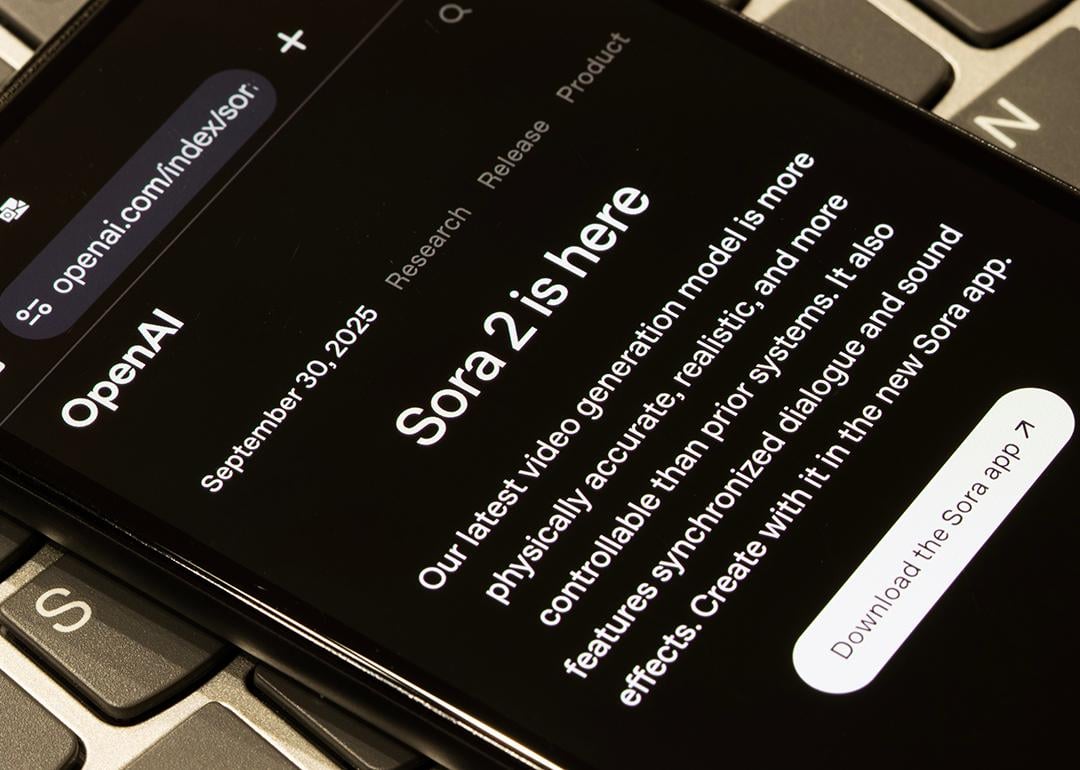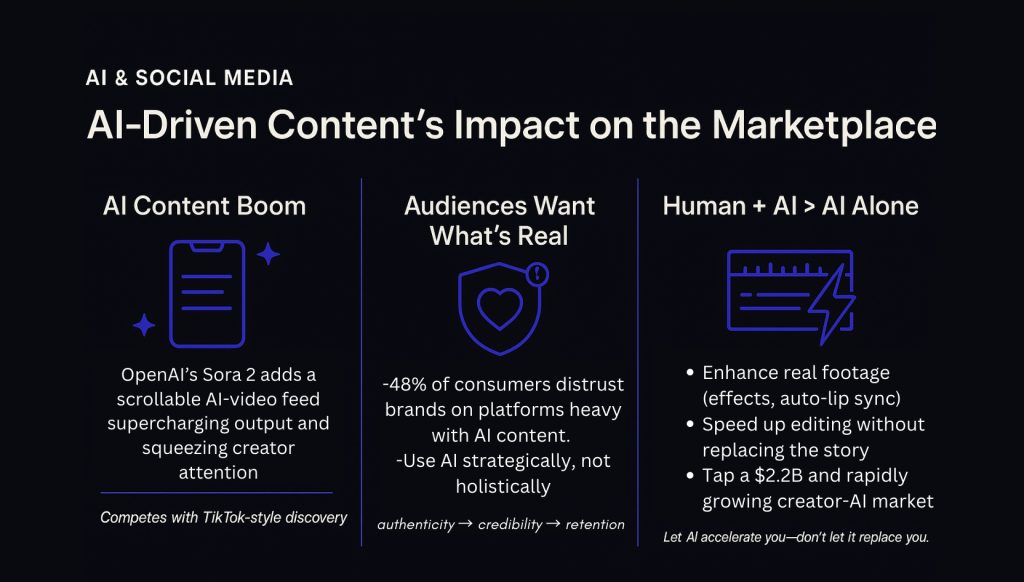
AI and social media: AI-driven content's impact on the marketplace
AI and social media: AI-driven content's impact on the marketplace
It’s not an overstatement to say that social media is in crisis, and that AI content creation is the source of this industry-shaking state of affairs.
Naysayers claim that it’s the end of human creativity, with all the cultural and economic repercussions this implies. Meanwhile, proponents push AI hype to extreme levels, heralding this as a new era of growth and engagement.
As with most binary debates, the reality sits somewhere in between. To get to the bottom of where things actually stand for social media content in an AI-first market, the team at Magic Hour dives into the data and trends.
Why AI Content Is So Impactful
AI content has been around for a few years now, although it’s only in recent months that the true scope of its power has come into focus for content creators in particular.
Most recently, OpenAI’s launch of its Sora 2 video generation platform sent shockwaves through creative spheres. In Hollywood, studios and agencies are up in arms. The ease with which existing IP and even individual actors’ likenesses can be emulated is as impressive as it is worrying.
However, the social side of this launch is arguably more important, as it brings OpenAI’s tools closer to impinging on territory currently dominated by TikTok. Including a scrollable feed of AI-generated video clips in the Sora app gives users another reason to use it, but it also presents challenges for creators competing for an increasingly smaller share of their audience’s attention.
Why It’s Not the End of the Line for Human Creators
The idea that AI content will replace human-originated output entirely is overblown. This comes down to the question of authenticity and trust.
No matter how eye-catching and engaging AI images and videos might be, they lack the personal connection people crave. A Nielsen study even found that 48% of consumers distrust companies that promote products on platforms that are heavily reliant on AI content.
In short, there’s an incentive to use AI strategically, rather than holistically, from the perspective of both user engagement and positive brand-building.

Balancing Efficiency and Authenticity
AI is incredibly useful for content creators on social media. It speeds up production times and drives down costs. And since audiences have an ever-increasing hunger for content, using this tech makes meeting this demand viable for even the smallest of teams.
So, what’s a suitable way of implementing AI in a social media content creation workflow without kicking authenticity to the curb in the process?
Chiefly, the question of how AI tools are used must be considered carefully. The fastest way to pump out content is also the least personal. If you’re asking ChatGPT or Google Gemini to come up with a prompt to feed into Sora 2 or Veo 3, then slotting the resulting clip into your feeds without any alteration, the results will be a long way from authentic.
The savvier strategy is to treat AI tools just as they are: tools that creatives can use to enhance their own talents and reach their goals sooner without making sacrifices. It’s already a $2.2 billion market, and rapid projected growth suggests that there’s real benefit to adoption.
For instance, authenticity in social media often comes down to the connection audiences feel with the people who appear on screen. So using generative tools to adapt existing images or video clips preserves this. Whether that’s adding effects to enhance footage, embracing automated lip syncing to jump on board with memes, or speeding up editing through automation, the options are varied, and the end results won’t feel half-baked.
Should Social Media Creators Use AI Content Tools?
There’s no escaping the fact that social media creators must walk a thin line when using AI tools to assist with their workflows. Go too far, and you risk alienating audiences that have taken years to build. Fail to use these tools at all, and you risk being overtaken by other creators who aren’t so reluctant.
Even with all the progress seen so far, AI is still in its infancy. Adopting it to amplify human creativity now also means you’re building the skills and knowledge that will serve you well as it becomes even more advanced and ingrained in our lives in the years to come.
This story was produced by Magic Hour and reviewed and distributed by Stacker.



